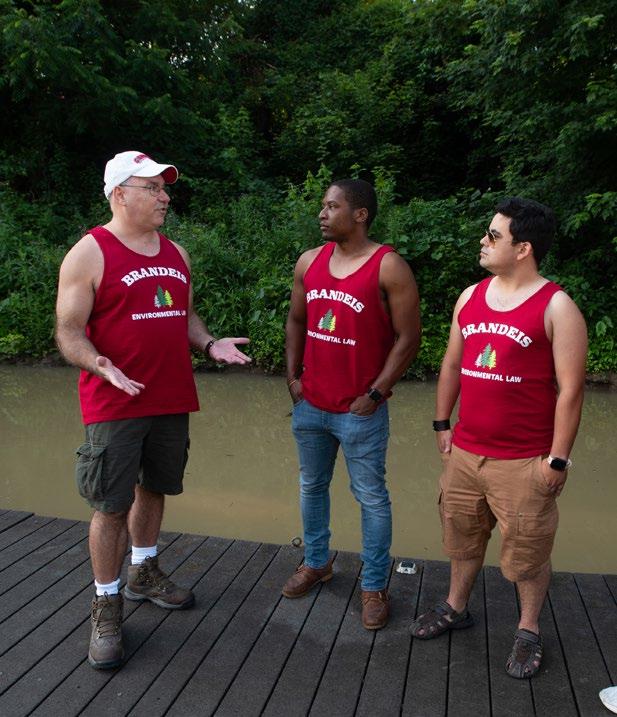
1 minute read
FACULTY ACTIVITIES - PROFESSOR TONY ARONLD
from Brandeis Brief 2021
THE PERCENTAGE OF LAWYERS OF COLOR IN THE UNITED STATES IS DISPROPORTIONATELY LOW , with African Americans and Latino individuals making up roughly 5% each, according to the American Bar Association 2020 Profile of the Legal Profession. The numbers are even lower in the field of environmental law. But Brandeis Law is trying to change these statistics by addressing barriers to opportunities and providing mentorship.
Cameron Lyons and Lauren Neal, both secondyear students of color, engaged in unique summer experiences in 2021. Lyons was a fellow with the National Wildlife Federation and helped address equitable access to the Land and Water Conservation Fund.
Neal was a community engagement intern for Kentucky Waterways Alliance and a legal intern for the Kentucky Equal Justice Center. She created relationships between KWA and communities of color within Kentucky to give underrepresented communities a voice. Her work with KEJC involved legal research and writing to impact litigation and legislative housing and consumer law issues.
“Representation can make a world of difference when it comes to bridging the gap of communication so that the cycle of exclusivity and marginalization stops. Having a seat at the table allows for those conditions to be replaced by the empowerment of being present and, moreover, being genuinely heard in shaping the conversations about the environmental injustices that affect these communities,” Neal says.
Both students credit Professor Tony Arnold, Boehl Chair in Property and Land Use, for mentoring them and making the connections needed to land their summer experiences. “Professor Arnold has been the biggest mentor and encourager when it comes to my pursuits. He has been an amazing guide and wealth of knowledge on how to pursue my dreams,” Lyons says.
Arnold says that when law students of color become interested in environmental law, they need mentors who will encourage their interests and connect them to valuable opportunities.
Through the Resilience Justice Program, students can work with Arnold at the intersection of environmental justice, public policy and activism.










